Vegetables draw lots of nutrients from your soil, which is what makes them so delicious and nutritious. Over time, your garden soil will get depleted of these essential nutrients. In order to keep growing healthy, lush veggies, you have to be “growing” healthy, rich soil (or buying it if you don’t have the time/means to compost at home).
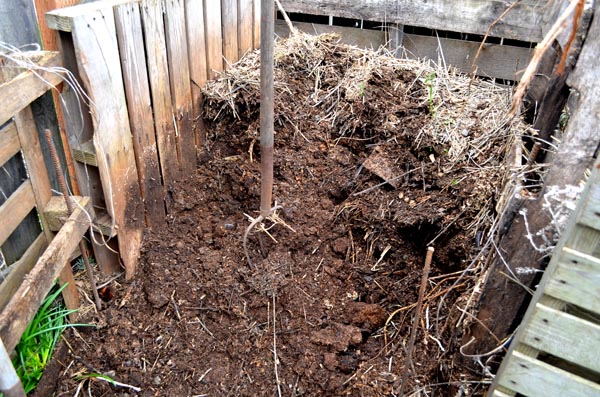
Harvesting “finished” compost from our three bin system
My three bin compost system transforms our kitchen scraps, chicken waste and garden debris into tons of excellent, nutrient-rich finished compost 365 days a year. I know when a pile has become “finished compost” when it is dark and finely textured. It might be warm in the middle of the pile, but no longer hot and steaming (the heat is the result of micro organisms busily at work). There are no large pieces remaining of food waste or garden debris and it will smell rich and earthy.
I add finished compost to my garden soil every time I plant a new crop. You don’t need to till the compost into the soil – I just add mine on top of the existing soil. If you have compacted soil, then some light turning might be a good idea to distribute the added nutrients and break up the compaction.

Compost is ready to be used in the garden when it is dark and finely textured.
In the spring, I add an extra thick helping of compost to all of my garden beds – about 4-6″ depending on how much I have ready from my bins. This is the time of year when the beds are the emptiest, which makes it really easy to get a thick, even layer distributed throughout the beds. It’s easy to tuck new compost in between the few winter plants, like leeks, onions and kale.
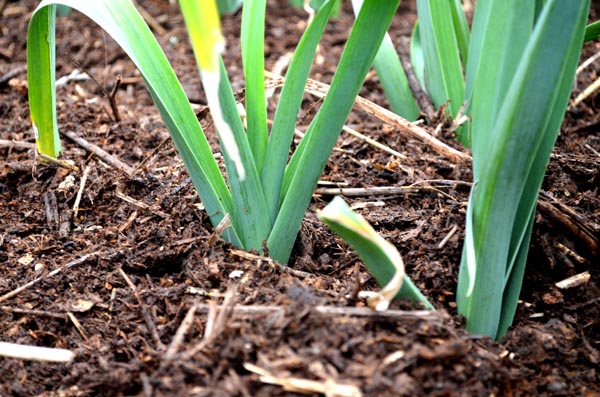
If you are not composting on your homestead, now is the time to pick up some bags of compost from your local nursery before your spring planting. Chicken manure and mushroom compost are often sold in bags at garden centers and will also be a good source of nutrients for your soil. Any good garden store will be able to point you in the right direction for organic soil amendments.
After the spring garden bed prep, my soil work is not done. I will keep turning in fresh compost with each new crop as the season progresses. The warm-weather crops – like tomatoes, eggplants, peppers and squash – will get planted with a heaping shovelful of compost. This will help them get a great start as their roots begin searching for nutrients.
Are there certain pre-planting rituals you follow on your homestead? Do you opt for homemade compost or do you prefer some other organic method? Have you started planting already? I’d love to hear what is keeping you busy this spring!
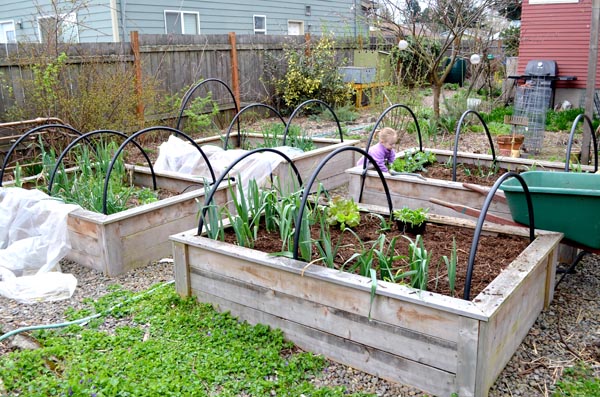
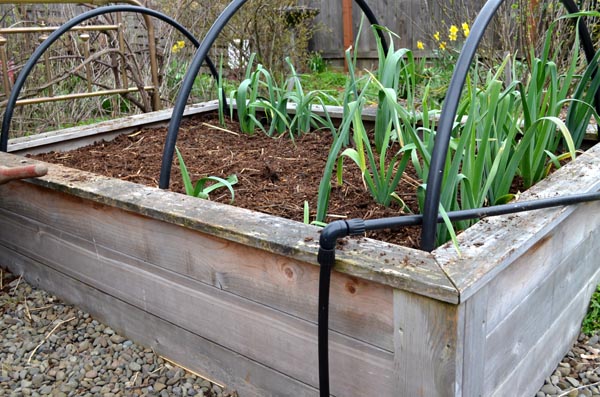
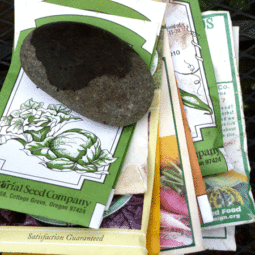

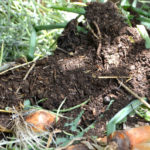
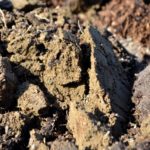

 This has become my
This has become my
 This is from South
This is from South


 All the ornamental grasses get cu
All the ornamental grasses get cu


